Cameron Morse
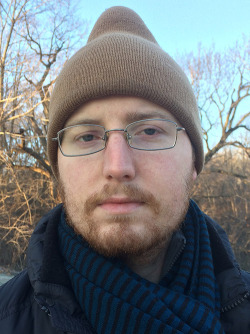 Cameron Morse taught and studied in China. Diagnosed with Glioblastoma in 2014, he is currently a third-year MFA candidate at the University of Missouri—Kansas City and lives with his wife Lili and newborn son Theodore in Blue Springs, Missouri. His poems have been or will be published in New Letters, Bridge Eight, South Dakota Review, I-70 Review and TYPO. His first collection, Fall Risk, is forthcoming in 2018 from Glass Lyre Press.
Cameron Morse taught and studied in China. Diagnosed with Glioblastoma in 2014, he is currently a third-year MFA candidate at the University of Missouri—Kansas City and lives with his wife Lili and newborn son Theodore in Blue Springs, Missouri. His poems have been or will be published in New Letters, Bridge Eight, South Dakota Review, I-70 Review and TYPO. His first collection, Fall Risk, is forthcoming in 2018 from Glass Lyre Press.
Centerpoint
Crossing into the main hospital, I remember
the bruise of my past life, thunderheads
of scar tissue in the crook of my arm, vials
of blood drawn weekly while I ate Temodar.
I remember the red river of platelets, lymphocytes,
and white blood cells that sprang
from my weariest vein. After two years,
I’m returning to Centerpoint Medical Center
as another man, a man accompanying his wife
on the hospital tour that will give them triage,
labor rooms, and the mother-baby unit
where she will rest after giving birth to their firstborn
in October—a man with no bracelet around his wrist,
no name, no date of birth, no questions asked.
Apnea
noun, Pathology.
1.
a temporary suspension
of breathing, occurring in some newborns
in the early morning
dark where I walk. When it sounds
as if the whole world is holding its breath, waiting
for a squirrel to pick itself up
and walk away from its body and brains
dashed along the curb, prostrate,
I-70 murmuring like a lamasery
beyond the rooftops, a road tossing
in its rocky bed, all the contrivances of man.
Beside the squirrel, oak leaves choke
the storm drain. No one is coming
to clean up the mess.
 Rebecca Vedavathy is a research scholar studying Francophone Literature in EFLU, Hyderabad. She began writing as a child but only discovered its appreciation when she read a Francophone Literature class many years later. She won the Prakriti Poetry Contest, 2016. She longlisted in English Poetry for the Toto Funds the Arts Awards, 2017 and 2018. She is currently a Shastri Indo-Canadian Research Fellow interning at the University of Quebec, Montreal.
Rebecca Vedavathy is a research scholar studying Francophone Literature in EFLU, Hyderabad. She began writing as a child but only discovered its appreciation when she read a Francophone Literature class many years later. She won the Prakriti Poetry Contest, 2016. She longlisted in English Poetry for the Toto Funds the Arts Awards, 2017 and 2018. She is currently a Shastri Indo-Canadian Research Fellow interning at the University of Quebec, Montreal. Luke Best is from Toowoomba on the Darling Downs where he was born in 1982. He is married with three children. He has been published in Overland and his manuscript Percussion was Highly Commended in the 2017 Thomas Shapcott Poetry Prize.
Luke Best is from Toowoomba on the Darling Downs where he was born in 1982. He is married with three children. He has been published in Overland and his manuscript Percussion was Highly Commended in the 2017 Thomas Shapcott Poetry Prize.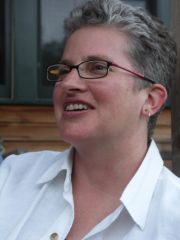 Rose Lucas is a Melbourne poet. Her first collection, Even in the Dark (University of WA Publishing), won the Mary Gilmore Award in 2014; her second collection was Unexpected Clearing (UWAP, 2016). She is currently working on her next collection At the Point of Seeing. She is a Senior Lecturer in the Graduate Research Centre at Victoria University.
Rose Lucas is a Melbourne poet. Her first collection, Even in the Dark (University of WA Publishing), won the Mary Gilmore Award in 2014; her second collection was Unexpected Clearing (UWAP, 2016). She is currently working on her next collection At the Point of Seeing. She is a Senior Lecturer in the Graduate Research Centre at Victoria University.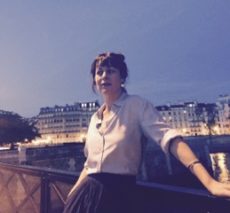 Claire Potter ’s most recent poetry publications have appeared in The Fremantle Press Anthology of Western Australian Poetry (edited by John Kinsella and Tracy Ryan), Best Australian Poems 2016 (ed. Sarah Holland-Batt), Poetry Chicago (ed. Robert Adamson), and Poetry Review Ireland. She was shortlisted for a 2017 Keats-Shelley Poetry Prize UK and she has published three poetry collections, In Front of a Comma (Poets Union 2006), N’ombre (Vagabond 2007) and Swallow (Five Islands 2010). She lives in London.
Claire Potter ’s most recent poetry publications have appeared in The Fremantle Press Anthology of Western Australian Poetry (edited by John Kinsella and Tracy Ryan), Best Australian Poems 2016 (ed. Sarah Holland-Batt), Poetry Chicago (ed. Robert Adamson), and Poetry Review Ireland. She was shortlisted for a 2017 Keats-Shelley Poetry Prize UK and she has published three poetry collections, In Front of a Comma (Poets Union 2006), N’ombre (Vagabond 2007) and Swallow (Five Islands 2010). She lives in London.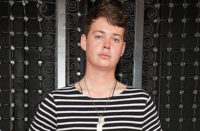 Robbie Coburn was born in Melbourne and grew up on his family’s farm in Woodstock, Victoria. His poems have been published in various journals and magazines including Poetry, Cordite, The Canberra Times, Overland and Going Down Swinging, and his poems have been anthologized. His first collection, ‘Rain Season’, was published in 2013 and a second collection titled The Other Flesh is forthcoming. He lives in Melbourne.www.robbiecoburn.com.au
Robbie Coburn was born in Melbourne and grew up on his family’s farm in Woodstock, Victoria. His poems have been published in various journals and magazines including Poetry, Cordite, The Canberra Times, Overland and Going Down Swinging, and his poems have been anthologized. His first collection, ‘Rain Season’, was published in 2013 and a second collection titled The Other Flesh is forthcoming. He lives in Melbourne.www.robbiecoburn.com.au Kate
Kate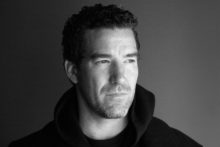 Adam Day is the author of the collection of poetry,
Adam Day is the author of the collection of poetry,  Lindsay Tuggle has been widely published in journals and anthologies, including: Cordite, Contrapasso, HEAT, Mascara, Rabbit, and The Hunter Anthology of Contemporary Australian Feminist Poetry(2016). She was short-listed for the University of Canberra Vice-Chancellor’s International Poetry Prize, judged by Simon Armitage. Her work has been recognised by major literary awards, including: the Gwen Harwood Poetry Prize (shortlisted 2015), the Val Vallis Award for Poetry (second prize 2009, third prize 2014), and the Canberra Vice-Chancellor’s Poetry Prize (shortlisted 2016, longlisted 2014). Her first collection, Calenture, is forthcoming with Cordite Publishing. The manuscript evolved from residential writing fellowships awarded by institutions including the Australian Academy of the Humanities, the Library of Congress, and the Mütter Museum of Philadelphia. Tuggle also writes on intersections of poetry and science. The University of Iowa Press’s Whitman Series invited her first book, The Afterlives of Specimens: Science and Mourning in Whitman’s America (forthcoming in 2017). She wrote a chapter on ‘Poetry and Medicine’ for Cambridge University Press’sWhitman in Context (2017). She teaches literary studies at Western Sydney University.
Lindsay Tuggle has been widely published in journals and anthologies, including: Cordite, Contrapasso, HEAT, Mascara, Rabbit, and The Hunter Anthology of Contemporary Australian Feminist Poetry(2016). She was short-listed for the University of Canberra Vice-Chancellor’s International Poetry Prize, judged by Simon Armitage. Her work has been recognised by major literary awards, including: the Gwen Harwood Poetry Prize (shortlisted 2015), the Val Vallis Award for Poetry (second prize 2009, third prize 2014), and the Canberra Vice-Chancellor’s Poetry Prize (shortlisted 2016, longlisted 2014). Her first collection, Calenture, is forthcoming with Cordite Publishing. The manuscript evolved from residential writing fellowships awarded by institutions including the Australian Academy of the Humanities, the Library of Congress, and the Mütter Museum of Philadelphia. Tuggle also writes on intersections of poetry and science. The University of Iowa Press’s Whitman Series invited her first book, The Afterlives of Specimens: Science and Mourning in Whitman’s America (forthcoming in 2017). She wrote a chapter on ‘Poetry and Medicine’ for Cambridge University Press’sWhitman in Context (2017). She teaches literary studies at Western Sydney University.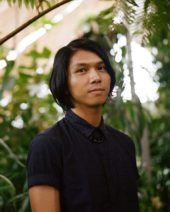 Adolfo Aranjuez is editor of Metro, subeditor of Screen Education, and a freelance writer, speaker and dancer. He has edited for Voiceworks and Melbourne Books, and been published in Right Now, The Lifted Brow, The Manila Review, Eureka Street and Peril, among others. Adolfo is one of the Melbourne Writers Festival’s 30 Under 30. http://www.adolfoaranjuez.com
Adolfo Aranjuez is editor of Metro, subeditor of Screen Education, and a freelance writer, speaker and dancer. He has edited for Voiceworks and Melbourne Books, and been published in Right Now, The Lifted Brow, The Manila Review, Eureka Street and Peril, among others. Adolfo is one of the Melbourne Writers Festival’s 30 Under 30. http://www.adolfoaranjuez.com